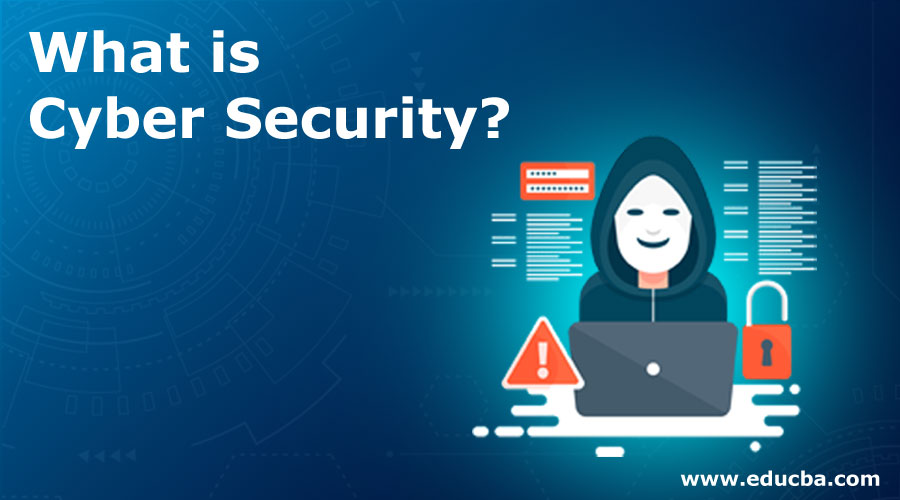
In today’s digital age, where our lives are increasingly intertwined with technology, the need for robust cyber security measures has become more critical than ever. With the rapid advancements in the realm of cyberspace, protecting sensitive information and ensuring the integrity of digital infrastructure have emerged as paramount concerns. From governments and corporations to individuals, everyone is vulnerable to cyber threats that can wreak havoc on personal privacy, financial stability, and even national security.
So, what exactly is cyber security? In simple terms, it refers to the practice of safeguarding computer systems, networks, and data from unauthorized access or malicious attacks.
Defining Cyber Security
Cybersecurity refers to the practice of protecting computers, servers, networks, and data from unauthorized access and potential threats. In today’s digital age, where technology plays a crucial role in almost every aspect of our lives, cybersecurity has become more important than ever. It encompasses various measures, strategies, and technologies designed to safeguard information systems against cyberattacks or any form of malicious activity. The primary goal of cybersecurity is to ensure the confidentiality, integrity, and availability of data. This involves implementing robust security protocols such as firewalls, antivirus software, encryption techniques, intrusion detection systems (IDS), and virtual private networks (VPNs). Cybersecurity professionals are responsible for developing and managing these protective measures to prevent unauthorized access or infiltration by hackers or other malicious entities.
In addition to protecting sensitive data from external threats like viruses or malware attacks, cybersecurity also focuses on preventing internal security breaches. This includes educating employees about best practices for creating strong passwords, recognizing phishing attempts or social engineering tactics used by attackers aiming to gain unauthorized access. By actively addressing vulnerabilities within an organization’s infrastructure and promoting a culture of security awareness among its members, effective cybersecurity can reduce the risk of cybercrimes and protect valuable assets from potential harm.
Importance of Cyber Security in Today’s World
Cyber security is the practice of protecting electronic systems, networks, and devices from unauthorized access or attacks. With the increasing reliance on technology in today’s world, cyber security has become more important than ever before. It plays a crucial role in safeguarding sensitive information, such as personal data, financial details, and intellectual property. In today’s interconnected society, cyber threats are constantly evolving and becoming more sophisticated. Hackers and cyber criminals are always finding new ways to exploit vulnerabilities in computer systems or trick individuals into revealing their private information. The consequences of a successful cyber attack can be devastating – from financial loss to reputational damage for businesses or even identity theft for individuals.
Moreover, with the rise of cloud computing and remote work arrangements, ensuring strong cyber security measures has become essential for organizations to protect their confidential data and maintain business continuity. Cyber security also extends beyond individual privacy concerns; it encompasses national security as well. Governments around the world invest significant resources in strengthening their cyber defenses to safeguard critical infrastructure like power plants, transportation systems, or military networks.
Common Threats and Vulnerabilities
Cybersecurity is the practice of protecting computer systems, networks, and data from digital attacks or unauthorized access. In today’s interconnected world, cyber threats and vulnerabilities have become increasingly prevalent and sophisticated. One common threat is malware, which refers to malicious software that can infiltrate a system to disrupt its functioning or gain unauthorized access to sensitive information. Malware can be spread through various means such as email attachments, infected websites, or compromised software.
Another significant vulnerability lies in weak passwords and poor authentication practices. Many individuals tend to use easily guessable passwords or reuse the same password across multiple accounts, making it easier for hackers to gain unauthorized access. Additionally, insufficient security measures in place during authentication processes make it easier for attackers to bypass them and gain entry into protected systems. Furthermore, phishing attacks pose a serious threat in the cybersecurity landscape. Phishing involves tricking individuals into revealing their personal information by posing as a trustworthy entity through emails or websites. These fraudulent attempts often prey on human vulnerabilities like curiosity or urgency while impersonating well-known organizations such as banks or government agencies.
Overall, understanding these common threats and vulnerabilities is crucial in developing effective cybersecurity strategies that protect against potential breaches and ensure the safety of digital assets.
Measures to Protect Against Cyber Attacks
Cybersecurity is the practice of protecting computer systems, networks, and data from unauthorized access or attacks. With the increasing dependence on technology in almost every aspect of our lives, it has become crucial to implement effective measures to protect against cyber attacks. One important measure is ensuring strong passwords and regularly changing them. Weak passwords are easy targets for hackers, so it is essential to use a combination of letters, numbers, and special characters for maximum security.
Another vital measure is keeping software and operating systems up to date. Many cyber attacks exploit vulnerabilities in outdated software versions that have not been patched with the latest security updates. Regularly updating software can help prevent such exploits and keep your system protected. Additionally, installing reliable antivirus and anti-malware software can provide an extra layer of defense against potential threats by scanning files, email attachments, and websites for any malicious activity. Firewalls monitor incoming and outgoing network traffic based on predetermined security rules; this helps block unauthorized access attempts while allowing legitimate communication. By combining these measures along with employee education about cybersecurity best practices like avoiding suspicious emails or links, organizations can significantly enhance their protection against cyber attacks.
Role of Individuals and Organizations in Cyber Security
Cybersecurity refers to the practice of protecting computers, servers, mobile devices, electronic systems, networks, and data from digital attacks or unauthorized access. In today’s increasingly digital world, cyber threats are becoming more prevalent and sophisticated. As a result, the role of individuals and organizations in cybersecurity has become crucial. At an individual level, everyone has a responsibility to ensure their personal devices and online activities are secure. This involves regularly updating software and operating systems, using strong passwords or two-factor authentication methods for accounts, being cautious while clicking on links or downloading attachments from unknown sources, and staying informed about potential cyber threats. By practicing good cybersecurity habits, individuals can prevent their own information from being compromised and contribute to a safer digital environment.
On the other hand, organizations play a vital role in maintaining robust cybersecurity measures. It is essential for businesses to establish comprehensive security policies that address potential risks such as malware attacks or data breaches. Organizations must invest in reliable antivirus software solutions and firewalls while conducting regular security audits to identify vulnerabilities within their systems. Additionally, employee training programs should be implemented to educate staff members about best practices for handling sensitive data and recognizing phishing attempts. By prioritizing cybersecurity within an organization’s operations and culture, companies can safeguard valuable information assets against cyber threats.
Future Trends in Cyber Security
Cyber security refers to the practice of protecting computer systems, networks, and data from unauthorized access or potential threats. With the continuous advancements in technology and the increasing reliance on digital platforms, cyber security has become a crucial aspect for individuals, businesses, and governments alike. However, as technology continues to evolve, so do the threats associated with it. Therefore, it is essential to keep an eye on future trends in cyber security to stay ahead of potential risks. One of the key future trends in cyber security is the rise of artificial intelligence (AI) and machine learning (ML) technologies. AI can automate various aspects of cyber security such as threat detection, response mechanisms, and vulnerability assessments. By leveraging large amounts of data and algorithms, AI-powered systems can identify patterns and anomalies that human operators might miss. ML algorithms enable these systems to continuously learn from new threats and adapt their defenses accordingly.
Another emerging trend is the focus on securing Internet of Things (IoT) devices. As more devices become interconnected through IoT networks, they present attractive targets for hackers seeking to exploit vulnerabilities within these systems. Securing IoT devices involves not only protecting individual devices but also ensuring secure communication between them and safeguarding data transmitted across these networks. With billions of IoT devices expected to be deployed in various sectors like healthcare, manufacturing, transportation etc., robust cyber security measures will be required to mitigate potential risks arising from this rapidly expanding ecosystem.
Conclusion: The Need for Vigilance in Cyberspace
In conclusion, cyber security is a critical aspect of our modern world that cannot be ignored. With the increasing reliance on technology and the growing threat of cyber attacks, it is more important than ever to prioritize the protection of our digital assets and information. Cyber security encompasses various measures and practices aimed at preventing unauthorized access, data breaches, and other malicious activities. By understanding the basics of cyber security and implementing effective strategies, individuals and organizations can safeguard their sensitive data and maintain their online privacy. Therefore, it is crucial for everyone to stay informed about the latest cyber threats and take proactive steps to ensure their own digital safety. Protecting ourselves in the digital realm is not only a personal responsibility but also a collective effort towards building a secure cyberspace for all.
ALSO READ / whats is e commerce





